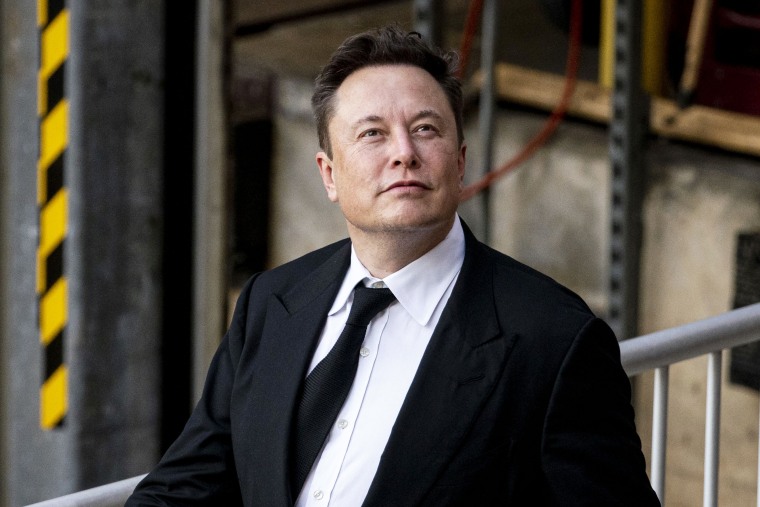How is it legal to track someone's private jet?
It's a question that has emerged in light of Twitter's decision to ban accounts that tracked private planes, including one — @ElonJet — that reported the flight activity of its own CEO, Elon Musk.
The owner of the @ElonJet account, Jack Sweeney, has previously said that all the information he used to create the account is publicly available. Sweeney didn't respond to a request for additional comment.
Although the data used to operate the @ElonJet account and other similar accounts tracking celebrity planes is publicly accessible, experts note there isn't a single government registry of such data.
Instead, it actually requires putting together separate pieces of information to create tracking accounts. Doing so, of course, raises privacy concerns.
The tracking capabilities are possible thanks to a technology called Automatic Dependent Surveillance–Broadcast (ADS-B). It's like global positioning system technology, or GPS, but on steroids. Every three seconds, ADS-B equipment on a plane sends out real-time data about not just the aircraft's location, but also its altitude and velocity and other critical elements of its journey. That has two main purposes: to avoid midair collisions and to allow people on the ground to know where an airplane is at all times.
For decades, aircraft traveling outside of radar view were exposed to long stretches — over oceans, deserts, mountains — where no one knew where they were. The issue reached a chilling turning point in 2014, when Malaysia Airlines Flight 370 disappeared from radar carrying 239 passengers and crew members over the Andaman Sea off the Malay Peninsula, culminating in the most expensive airplane search effort in modern history.
ADS-B technology is now mandated by the Federal Aviation Administration on all aircraft to avoid such events.
But ADS-B technology also allows airplanes to be easily tracked by anyone with a compatible receiver. And if you're able to crowdsource enough additional information about an airplane, like its tail number and its previous locations, you can figure out who is likely to be using the plane, said Preston Holland, the chief operating officer at Flying Media Group.
And that's where a website like ADSBExchange.com comes in. It's an online forum for aviation enthusiasts that has also become a central clearinghouse for digital sleuths looking to figure out who may be flying and where.
The website's founder, Dan Streufert, said the site isn't explicitly designed for gawking at celebrities' whereabouts.
"All these folks send data in, we aggregate the info and put it on a map," Streufert said. "The purpose of this is not for being a paparazzi. It’s for aviation enthusiasts."
The website is where Sweeney appears to have sourced some of the information used to set up the @ElonJet tracking account.
Streufert acknowledged that many airplane owners have reasonable privacy concerns. But when it comes to removing sensitive information, he said, the website doesn't seek to be an arbiter of data that is widely accessible.
"It gets into who’s right and wrong," Streufert said. "When the war in Ukraine started, we got Russian oligarchs saying, 'Hey, hide my jet.' I don’t want to be taking sides."
He continued: "We publish everything, and it already is public data. We're not sharing anything you couldn't find from many other sources."
But other flight-tracking websites, like FightRadar.com and FlightAware.com, do actively suppress flight information about planes whose operators have asked the FAA to block their registration numbers from public view.
However, because ADSBExchange.com doesn't rely on FAA feeds but instead on individual site users, it isn't bound by that program.
The FAA has another program that allows planes to encode their ADS-B signals so they can't be matched to other information in the publicly available Civil Aviation Registry.
It's unclear whether Musk and his plane's operator participated in either the registration blocking program or the ADS-B signal encoding one. Musk couldn't be reached for comment.
In many cases, Streufert said, other high-profile people don't appear to take advantage of such programs.
"Which is surprising," Streufert said. "A lot are vocal about the privacy issue, and sometimes they don’t seem to be doing all they can to prevent this kind of thing."

